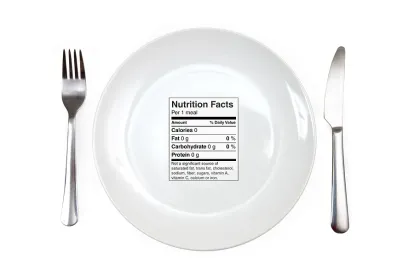A putative class action complaint alleging that a product labeled “Premium Baking Chips Classic White Chips” deceptively implied the product contained white chocolate has been dismissed after a federal court held that no reasonable consumer would be deceived because the product nowhere stated “chocolate” or “cocoa,” and the ingredient list plainly disclosed the product did not contain those ingredients. The decision reflects a growing trend of district courts limiting the Ninth Circuit’s Williams v. Gerber rule that a reasonable consumer need not examine the ingredient list.
In Cheslow v. Ghirardelli Chocolate Co., No. 19-cv-07467-PJH, the plaintiffs alleged they purchased Ghirardelli’s “Premium Baking Chips Classic White Chips” under the belief that the product contained white chocolate, when in fact it did not. The complaint brought claims under California’s three consumer protection statutes.
The plaintiffs conceded there was no affirmatively false statement on the product. Rather, they depended on the California rule prohibiting true statements that nonetheless have the capacity to deceive. The plaintiffs argued that the words “white” and “premium,” as well as images of white chips and white chip cookies on Ghirardelli’s product label implied that the product contained white chocolate.
The Decision
The court found these allegations insufficient to state a plausible deception claim. First, the court found that “white” is commonly understood to refer to color, not quality. Second, the court found that the word “premium” is puffery. Third, the court held that the images of white chips and white chip cookies did not imply that those chips contained chocolate.
The court further held that a reasonable consumer would have checked the product’s ingredient list and seen that it did not include chocolate or cocoa. While the court acknowledged the oft-cited holding from Williams v. Gerber, 552 F.3d 934, 939-40 (9th Cir. 2008) that “reasonable consumers are not expected to look beyond misleading representations on the front of the box to discover the truth from the ingredient list in small print on the side of box,” the court concluded that holding “is not a license to entirely disregard the ingredient list.” Rather, the court found that Williams applies only where there is an affirmative misrepresentation. Because there was no “affirmative” misrepresentation on Ghirardelli’s label, the plaintiffs were “not free to ignore the ingredient list that does not include the words chocolate or cocoa.”
Lastly, the court addressed the plaintiffs’ arguments that circumstances outside the product label caused their deception, namely (1) the word “chocolate” in Ghirardelli’s logo displayed on its website, (2) Ghirardelli’s alleged switch from a product containing real white chocolate to one not containing white chocolate, and (3) the retail placement of the product next to real white chocolate chips. The court rejected the first two allegations because the plaintiffs did not allege they visited the website or relied on Ghirardelli’s previous white chocolate chips packaging. The court rejected the third allegation because the plaintiffs failed to allege Ghirardelli controlled the retail product placement and because it was not reasonable for plaintiffs to assume the baking chips contained chocolate simply because they were placed next to real chocolate chips in the store.
The court granted the plaintiffs leave to amend, but expressed skepticism that the complaint could be amended to state a viable claim.
Analysis
Cheslow reflects a growing trend of district courts refusing to let consumers ignore the ingredient list where the deception claim is based on a collection of inferences rather than an affirmative misrepresentation on the product label. Cheslow also demonstrates the limitations of deception claims based on circumstances outside the label itself, such as statements on a manufacturer’s website and retail product placement.
Cheslow is one of several recent lawsuits claiming that white chips and candy are deceptively labeled to resemble real white chocolate. See Prescott v. Nestlé, 5:19-cv-07471 (N.D. Cal.); Winston v. The Hershey Co., No. 1:19-cv-03735 (E.D.N.Y.). This case may be predictive of how those lawsuits fare.




 />i
/>i
